AC and DC Motors: Differences and Advantages | Types of Electric Motors
Request a QuoteElectric motors play an essential role in almost every industry. Using the right type of motor with high-quality parts and regular servicing keeps your facility running smoothly and prevents damage to the endpoint equipment due to wear or power surges.
Gainesville Industrial Electric can help your company select the right industrial electric motors and parts for your applications.
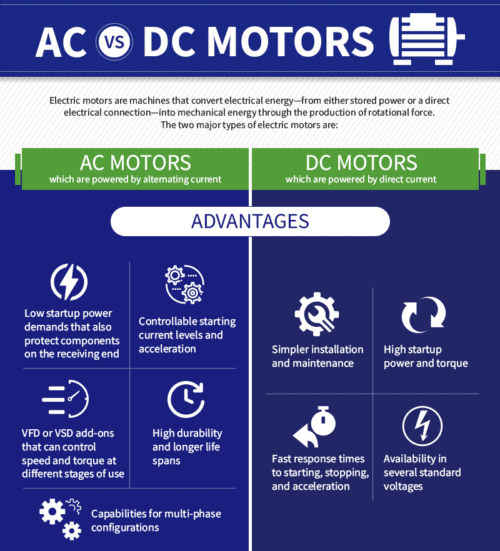
A Primer on Electric Motors
Electric motors are machines that convert electrical energy—from either stored power or a direct electrical connection—into mechanical energy through the production of rotational force. The two major types of electric motors are:
- AC motors, which are powered by alternating current
- DC motors, which are powered by direct current
How Electric Motors Work
Both AC and DC motors use electrical current to produce rotating magnetic fields that, in turn, generate rotational mechanical force in the armature—located on the rotor or stator—around the shaft. The various motor designs use this same basic concept to convert electric energy into powerful bursts of force and provide dynamic levels of speed or power.
Main Motor Components
While electric motors may differ from one design or type to another, many of them contain these parts and assemblies (located from the center working outward):
- Central motor shaft
- Windings
- Bearings (to reduce friction and wear)
- Armature (located on the rotor, the rotating part, or the stator, the stationary part)
- Brushes (in DC motors)
- Terminals
- Frame and end shields
Types of Electric Motors: AC vs. DC Motors
AC and DC motors are broad categories of motors that include smaller subtypes. Induction motors, linear motors, and synchronous motors, for example, are all types of AC motors. AC motors can also include variable-frequency drives to control the motor’s speed and torque, while DC motors are available in self-excited and separately excited-type models.
AC Motor vs. DC Motor Advantages
Each motor type has different advantages that make them best suited for different commercial and industrial applications. AC motors, for example, are flexible and easy to control. Some of their other advantages include:
- Low startup power demands that also protect components on the receiving end
- Controllable starting current levels and acceleration
- VFD or VSD add-ons that can control speed and torque at different stages of use
- High durability and longer life spans
- Capabilities for multi-phase configurations
DC motors also offer their own advantages, such as:
- Simpler installation and maintenance
- High startup power and torque
- Fast response times to starting, stopping, and acceleration
- Availability in several standard voltages
Which Motor Is More Powerful: AC or DC?
AC motors are generally considered to be more powerful than DC motors because they can generate higher torque by using a more powerful current. However, DC motors are typically more efficient and make better use of their input energy. Both AC and DC motors come in a variety of sizes and strengths that can meet any industry’s power requirements.
AC and DC Motor Applications
Both AC and DC motors find application in processes and facilities in almost every industry. Some of the most common industrial applications for AC motors include:
- Appliances
- Compressor drives and systems
- Computers
- Conveyor systems
- Fans and air conditioners
- Hydraulic and irrigation pumps
- Transportation equipment
Common industrial applications for DC motors include:
- Fabrication and production units
- Machinery that demands constant power such as vacuums, elevators, and sewing machines
- Warehouse sorting equipment
Selecting the Right Electric Motor for Your Industrial Application
Installing and maintaining the right motors in your company’s facilities and equipment is an essential step to ensuring uninterrupted operation and production.
Gainesville Industrial Electric sells and services AC and DC motors, parts, and more. We are also an authorized factory warranty center. For help selecting the right electric motor or industrial assembly for your application, contact us or request more information today to receive a quote.
Related Content:

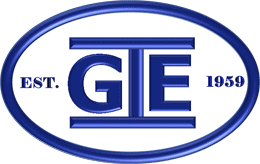
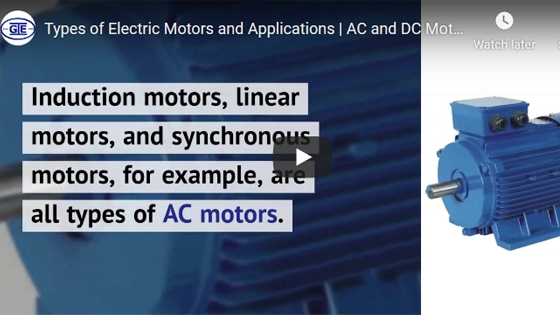
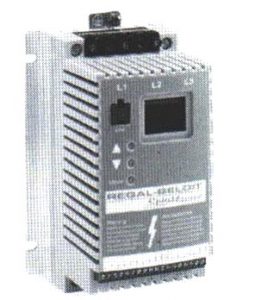
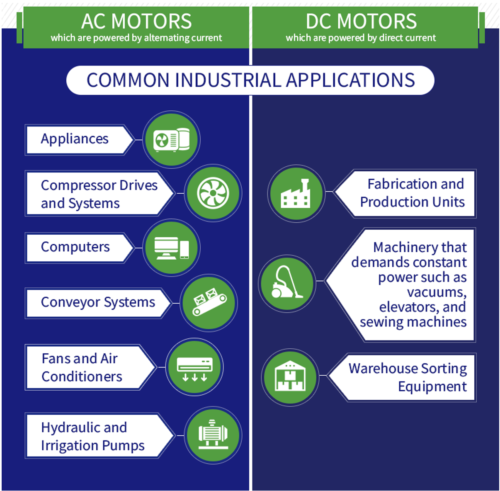
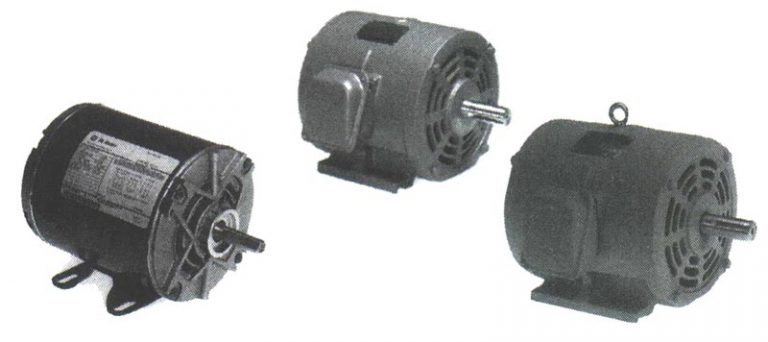

3 Comments
cellsolgroup
The blog provides the definite and authentic information. I truly prefer your style and your authenticity has made up my mind to come again and read the blog to increase my knowledge.
cellsolgroup
The blogs you have produced are really convincing. It highlights the issues of key importance to the general public. Please keep it up
Bramwel Muinde
good and very amazing analysed notes.